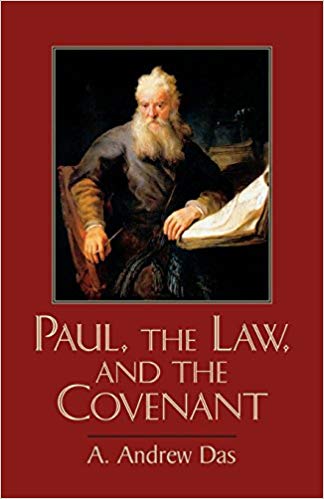File:2001 Das.jpg
2001_Das.jpg (324 × 499 pixels, file size: 25 KB, MIME type: image/jpeg)
{en} Paul, the Law, and the Covenant (2001) is a book by A. Andrew Das.
Abstract
"The now familiar new perspective asserts that the covenantal nomism characteristic of second-temple Judaism softened the Mosaic law"s requirement of perfect obedience. Because of God"s gracious covenant with Israel, manifested in election and the provision of atoning sacrifices, one could be righteous under the law despite occasional failures to obey the law perfectly. This view concludes that Paul, as a first-century Jew, could not have been troubled by the law's stringent demands, because it was generally understood that the gracious framework of the covenant provided a way of dealing with occasional lapses. Consequently, it is claimed, Paul s problem with the law must have to do with its misuse as a means of enforcing ethnic boundaries and excluding Gentile believers. However, as Das demonstrates in this book, whenever the gracious framework of covenantal nomism is called into question, the law's demands take on central importance. Das traces this development in a number of second-temple Jewish works and especially in the writings of Paul. Covenantal nomism is probably an apt characterization of Paul's opponents, and indeed of Paul's past life; thus he can assert that formerly he was blameless under the law. But now Paul sees God's grace as active only in Christ. He emphatically denies that God will show special grace in his judgment of Jews; to do so would be favoritism. Similarly, Paul sees no atoning benefit to the sacrificial system. In effect, Paul is no longer a covenantal nomist. Since the gracious framework of the covenant has collapsed, all that remains for Paul is the law, with its oppressive requirement of perfect obedience and ethnic exclusivism. Contra the "newperspective," the "works of the law" should not be construed so narrowly as only the law's ethnic exclusivity. Christ is "the end" of the law in general, both in the sense that he is the goal to which the law always pointed, and in that he is the sole agent of God's grace apart from which the law's demands would be impossible."--Publisher description.
Editions
Published in Peabody, MA: Hendrickson, 2001.
Table of contents
External links
File history
Click on a date/time to view the file as it appeared at that time.
| Date/Time | Thumbnail | Dimensions | User | Comment | |
|---|---|---|---|---|---|
| current | 12:06, 23 July 2018 |  | 324 × 499 (25 KB) | Gabriele Boccaccini (talk | contribs) |
You cannot overwrite this file.
File usage
There are no pages that use this file.
